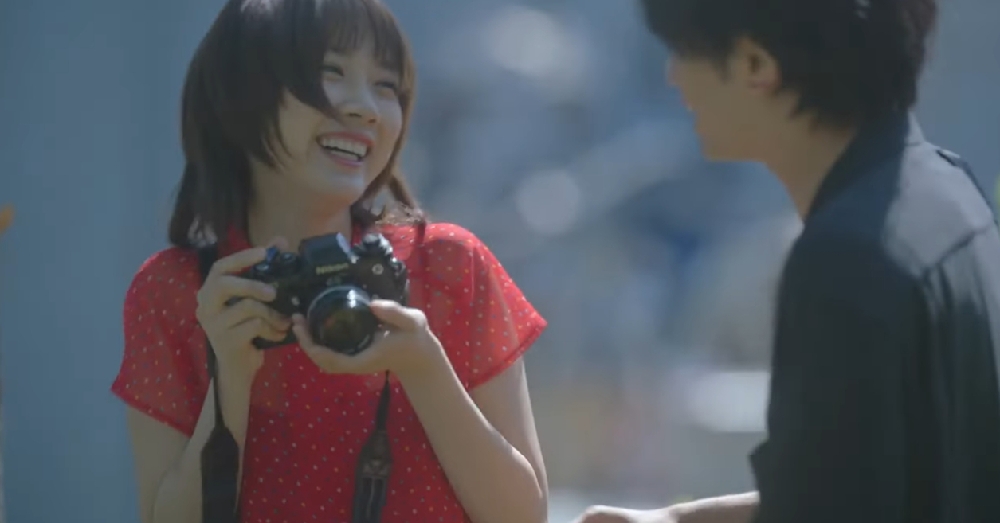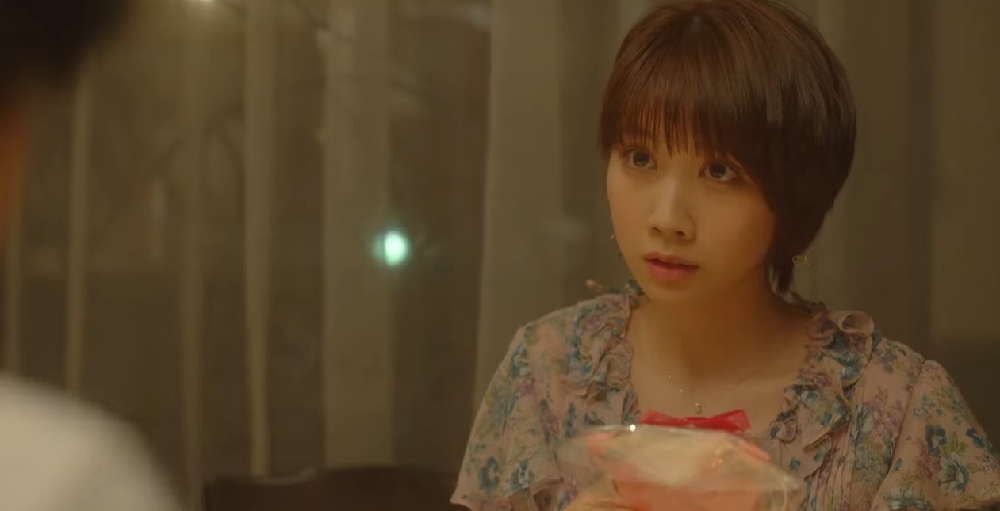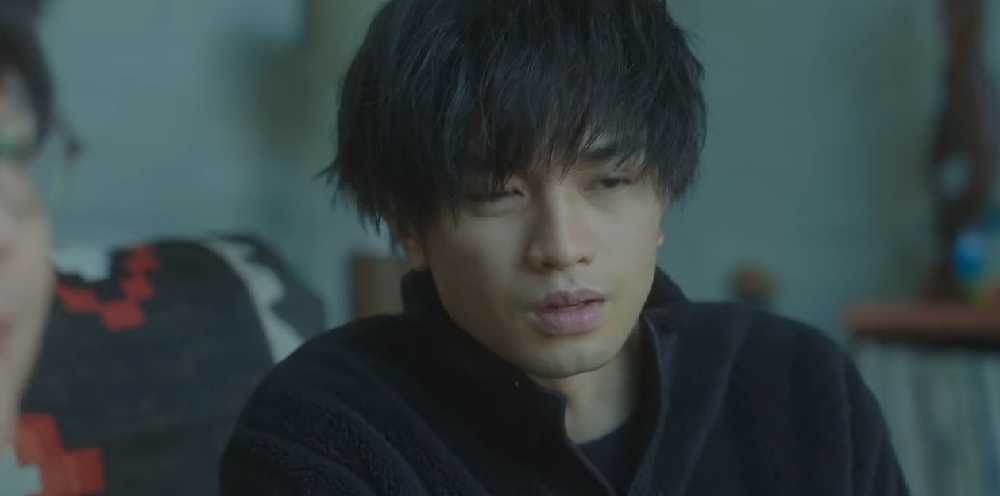
Do you want Love Like the Falling Petals Ending Explained? After the success of the romantic drama ‘Love Like the Falling Petals,’ viewers have been keen to discover more about what happened in the show. As a result, we’ve produced this article to provide you with a quick overview of Love Like the Falling Petals. Yoshihiro Fukagawa directed the love drama ‘Love Like the Falling Petals’ (previously ‘My Dearest, Like a Cherry Blossom’ or ‘Sakura No Yna Boku No Koibito’) with a magician’s precision and a touch of peace. The story recounts a short-lived romance, with symbolism recalling drifting times, and is based on Keisuke Uyama’s 2017 novel.
Haruto scans his surroundings with his camera, hoping to capture a fleeting moment. Misaki, on the other hand, suffers from a disease that causes time to accelerate. Meanwhile, every year the cherry blossom season arrives, reminding us of life’s transience. You might want to read it again because the ending is sad and emotional. We’ll get to the conclusion eventually, but first, let’s take a look back at the love and heartbreak roller coaster.
Love Like the Falling Petals Plot Synopsis
Photographer Haruto Asakura captures cherry blossoms while reliving a horrific event. He realizes how much he has hurt her, and the plot returns to his past. After months as a monk, Haruto decides to get a haircut, which leads him to the Penny Lane barbershop with a voucher in hand. In Misaki’s skillful hands, Haruto looks better than ever. Despite the fact that Misaki’s hairstyle is a touch uneven, Haruto compliments her on her cheerful demeanor. Haruto is a special customer to her because he cut her first hair and is always rearranging the salon in order to catch a glimpse of her.

Meanwhile, Misaki continues to brag about Haruto, the renowned photographer in her family who includes her brother and his partner Ayano. While getting his hair trimmed, Haruto plans to take Misaki out on a date, but an earlobe mishap causes him to pass out. Misaki profusely apologizes and promises to cover all costs. They visit a hospital and exchange phone numbers there. Haruto finally expresses himself on the phone by asking Misaki out on a date. Haruto is too formal, and they’re eating in a beautiful restaurant that he rarely visits.
Also Read: Our Flag Means Death Episode 9 and Finale Recap !!
Haruto later admits that he is not a photographer, and Misaki is disappointed in his failure to pursue his dream. Haruto avoids her and only meets her after returning to the studio to resume his work. Misaki discovers she has a rare genetic condition as their romance deepens. Fast Forward Syndrome is a syndrome in which she ages much quicker than the average person. After the revelation, Misaki pushes Haruto away, counting down the days till spring.
Love Like the Falling Petals Ending Explained: What Is Fast Forward Syndrome?
Do you want Love Like the Falling Petals Ending Explained? Misaki’s hair starts to grey at the age of twenty-five. Her coworker thinks it’s probably stress, but she has her suspicions. Misaki goes to the doctor with her brother, who informs her that she has progeroid syndrome symptoms. The syndrome in question is a rare hereditary disease that makes life tough for people. Progeroid, which is apparently derived from Progeria, describes itself as “resembling premature aging.”
The term refers to a large range of diseases that are all caused by mutations in a single gene. Fast aging in elderly persons is seen in both familial Alzheimer’s disease and familial Parkinson’s disease, but neither affects many tissues. As a result, the word is usually reserved for Segmental progeria, which occurs when many or all tissues are affected by aging. Misaki and her brother are taken aback when they hear the disease’s description.
The doctor says that more testing is essential because she believes the doctor is providing a theory. When the test results come back, the doctor is concerned that the patient has Fast Forward Syndrome, one of the family’s unusual ailments. While further examination has revealed that the illness is not real, the clinical pathology category of the progeroid syndrome does exist. Despite the fact that the symptoms are identical to Werner Syndrome, the onset is faster. In both cases, the disease accelerates the aging process and results in death. Misaki appears to be one of the unfortunate few.
What Happens to Misaki and Haruto?
From the moment she is diagnosed, Misaki’s fate appears to be sealed. However, the audience, like Misaki, finds it difficult to accept Misaki’s fate. Misaki’s brother does not give up on his sister, despite his wife’s harsh reality. Misaki goes through electromagnetic therapy, but it turns out to be a scam. After hearing the truth from an enraged customer, the brother comes to his senses. They’ve lost a lot of money, and the doctor earlier told them that there isn’t anything they can do. Misaki’s look deteriorates as her hair falls out and her skin ages.
After her breakup with Haruto, Misaki is confined to her room, while the rest of the family tries to live with the inevitable. Misaki, on the other hand, falls into tears when she sees Haruto removing camera equipment while on a trip. Misaki eventually admits that she is in desperate need of closure. Haruto runs into Misaki’s brother and tells him the whole story before inviting him to the house. Haruto finds himself outside the door once more, but Misaki refuses to let him in this time. Haruto is unafraid to open his heart and recall their lingering moments despite the little stumbling barrier. Misaki is invited to Haruto’s first show, ‘Time and Space.’ Despite her doubts, Misaki visits the exhibition to cling to her vanishing youth one last time.

The viewer’s mind is pulled back to the metaphor of falling petals as Misaki stares at the photo of cherry blossoms. People attempt to capture Love in the form of fluttering petals, yet they only catch the fleeting moments. Misaki does not survive the spring, and her brother honors Misaki’s request by not informing Haruto at the cremation. Haruto’s heart is left with a void after she goes away. He is depressed and has even considered suicide. Ayano arrives with a postmortem letter from Misaki in order to save the ending. Haruto’s emotions turn to laughter when Misaki proclaims her Love and expresses her gratitude for the earlobe incident. While Haruto does not kill himself, Misaki’s memory lingers on in Haruto’s heart for the rest of his springs.
Also Read: The Dropout Episode 6 Ending Explained: Does John Carreyrou Find a Whistleblower?

